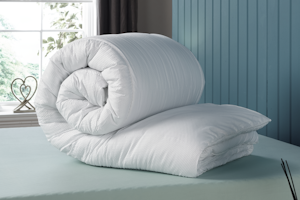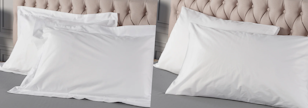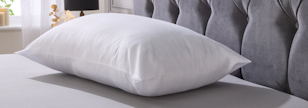04 Jun 2025
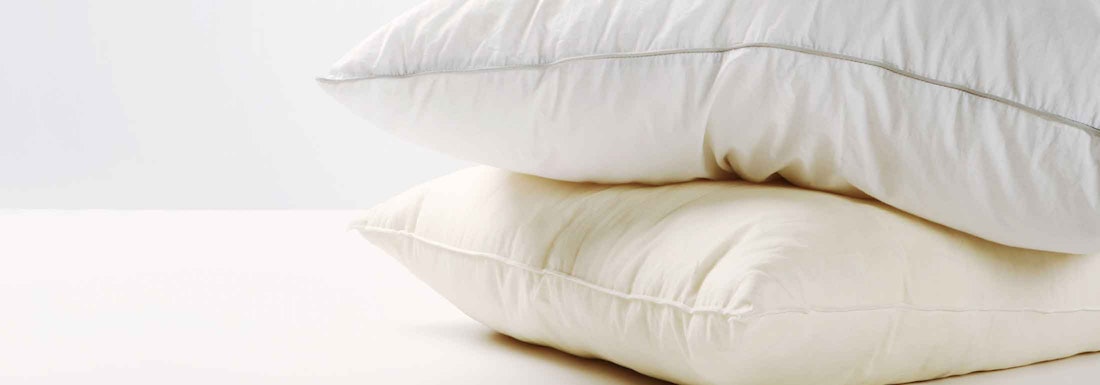
What Can You Do With Old Pillows?
10 Sep 2023
Old pillows can often feel like an unavoidable part of life, taking up space in our closets or becoming less comfortable as their support deteriorates over time. Many people find themselves wondering what to do with these old pillows to maximise their utility or reduce waste. This article aims to help you make informed decisions about the most suitable methods for disposing, recycling, or repurposing your old pillows, ensuring that you make the most eco-friendly choices possible.
The importance of properly disposing of old pillows cannot be understated, as sending them to landfill can create long-lasting environmental harm. By opting for more sustainable methods, we can contribute to reducing waste and preserving our environment. We'll cover various options from repurposing the pillows for gardening uses or crafting, as well as donating to relevant organisations and exploring recycling possibilities.
By understanding these options and implementing them in our daily lives, we can ensure that our old pillows find a new purpose, reduce our carbon footprint and contribute to a more sustainable future.
Key Takeaways
- Proper disposal of old pillows is essential to minimise environmental impact
- Repurposing, donating or recycling pillows are sustainable solutions
- Using old pillows in crafts or gardening can give them a new life
Importance of Proper Disposal
It is essential to dispose of old pillows responsibly to maintain a healthy and clean environment. Over time, pillows accumulate germs, mould, and bacteria, as well as body oil, dead skin cells, hair, and other potentially unhygienic elements. These factors can lead to the growth of dust mites and allergens, which could negatively affect the health and wellbeing of individuals using the pillows.
Furthermore, the improper disposal of old pillows can contribute to environmental pollution. Many pillows are not biodegradable, and they can take an extended period to decompose when disposed of in conventional ways. Consequently, carelessly throwing away pillows in regular trash bins can exacerbate landfill problems and lead to hazardous materials seeping into the soil and water sources.
Proper disposal of old pillows not only helps the environment but also provides an opportunity for repurposing and recycling. Some creative uses for old pillows include:
- Donating: While not all thrift stores accept used pillows, some charitable organisations or shelters may appreciate the donation, provided the pillows are clean and in good condition.
- Craft projects: Many people transform their old pillows into soft toys, pet beds, or decorative throw pillows with weather-resistant fabric.
- Moving and packaging material: Using old pillows as cushioning for fragile items during transportation can be a practical and cost-effective solution, reducing the need for purchasing new packaging materials.
In summary, disposing of old pillows responsibly is crucial for maintaining a clean and healthy living space, reducing environmental pollution, and utilising the potential for repurposing and recycling.
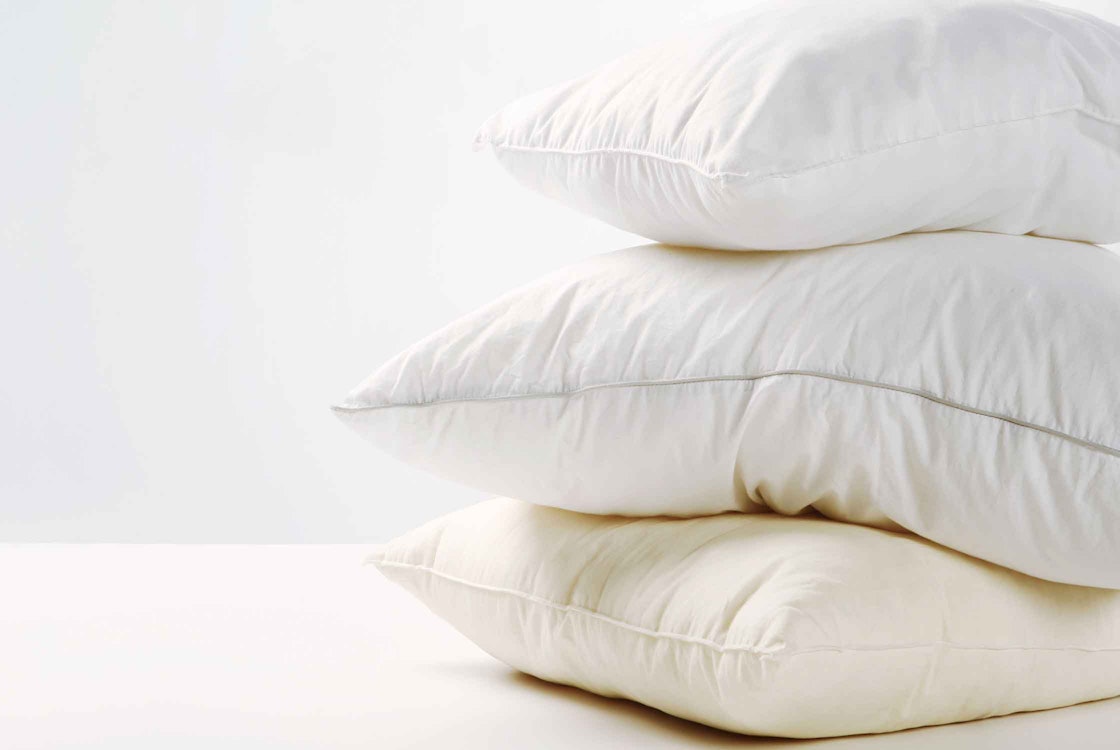
Repurposing Old Pillows
Old pillows often still have life in them and can be repurposed into useful items around the home. This section explores some creative ways to reuse old pillows, turning them into pet beds, floor cushions, and insulation material.
Pet Beds
One way to give life to your old pillows is by transforming them into comfortable pet beds. Simply sew together several old pillows to create a soft and cosy sleeping area for your beloved furry companions. If you want to give it a personalised touch, you can also add a removable and washable cover made from old bed sheets or pillowcases. This way, you're not only repurposing the pillows but also contributing to a more sustainable living by reducing waste.
Floor Cushions
Turning old pillows into floor cushions is another innovative and practical idea for repurposing. Start by measuring the size of your pillow and pick a suitable fabric for a new cover. Cut the fabric to size, leaving enough for seams, then sew it together. You could either choose a simple design with a zipper or Velcro for easy removal and cleaning or opt for a more decorative approach with buttons or ties. These comfortable floor cushions make excellent seating options for casual gatherings, movie nights, or reading nooks around your home.
Insulation Material
Old pillows can also serve as insulation material, providing benefits such as reduced energy costs and improved home comfort. Pillow stuffing made from polyester or down can be used to fill gaps or insulate small spaces, such as in attics, crawl spaces, and in-between walls. To utilise the stuffing effectively, separate the filling from the old pillows and compress it lightly to create a more compact form. Then, distribute the stuffing in the targeted insulation areas, ensuring adequate coverage for maximum effect. By offering an alternative use for old pillows as insulation material, you are contributing to a more sustainable lifestyle and reducing energy consumption in your home.
Donating Old Pillows
When looking for ways to dispose of old pillows, donating them can be a great option. There are various places that accept pillow donations, and they can be put to good use in these locations.
Local Shelters
One possibility for donating old pillows is to local homeless shelters. These organisations often need bedding materials for their residents, and your gently used pillows could help provide comfort to someone in need. Be sure to contact the shelter first to confirm their acceptance policies and to schedule a drop-off if they accept pillows.
Animal Rescue Centres
Another place that often accepts pillow donations is animal rescue centres and shelters. Many animals, especially rescue pets, are in need of cozy bedding materials that can provide them warmth and comfort. Old pillows can serve this purpose well. Reach out to local animal shelters and rescue centres to check if they take old pillows and arrange a secure drop-off. Keep in mind that it's important to only donate clean and gently used pillows, as materials like cotton and polyester fiber are generally safe, while down may cause allergic reactions in some animals.
Recycling Possibilities
Textile Recycling
One way to responsibly deal with old pillows is to recycle them. Many cities offer textile recycling programmes, which accept a variety of household items including bedding. Some stores, such as Dunelm, also offer textiles take-back recycling schemes which accept clean home textiles like duvets, pillows, and cushion covers. Be sure to check with your local recycling centre or participating stores to see if they accept pillows for recycling.
When recycling pillows, it is important to ensure they are clean and in the best possible condition to increase the likelihood of acceptance. It is also good practice to check if the programme accepts all types of pillows or if there are specific requirements for pillow materials.
Pillow Filling
Another possibility for recycling old pillows is to reuse the filling materials. For example:
-
Polyester Filling: This synthetic material is commonly found in pillows and can be used as stuffing for various projects, such as crafting, making soft toys, or even as insulation.
-
Down and Feather Filling: High-quality down and feather filling can be expensive, so if your old pillows contain these materials, they may be worth salvaging. Consider using the filling for creating new, smaller cushions or as a topping for pet beds.
-
Memory Foam: Old memory foam pillows can be cut into smaller pieces and used for various purposes, such as cushioning fragile items during shipment, crafting, or making seat cushions.
When repurposing pillow filling, make sure to thoroughly clean and dry the materials before use. Additionally, be aware of any potential allergies to the materials and ensure they are safe to use for the intended purpose.
Craft Ideas
Stuffed Toys
Creating stuffed toys is a delightful way to repurpose old pillows while engaging in a fun and creative activity. By using the stuffing from old pillows, you can give new life to materials that would have otherwise been thrown away. Begin by selecting a design, such as an animal or a character, and sketch it on a piece of fabric. Cut the fabric according to your design and sew the edges together, leaving an opening for the stuffing. Take the stuffing from the old pillow and fill the fabric with it. Sew the opening shut, and you have a new, homemade stuffed toy!
Draft Stopper
Old pillows can also be used to create practical and functional draft stoppers for your home. Draft stoppers are essential for preventing cold air from seeping in through doors and windows, making your home more energy-efficient and comfortable. To create a draft stopper, measure the width of the door or window where it will be placed. Cut a piece of fabric that is slightly longer and about four times wider than the measured width.
Fold the fabric in half lengthwise with the right sides facing each other, and sew along the open edge, leaving a small gap for the stuffing. Turn the fabric right side out, and fill it with the stuffing from the old pillow. Sew the gap closed, ensuring the stuffing is evenly distributed throughout the draft stopper. Place the newly created draft stopper at the base of the door or window to reduce drafts and make your home cosier.
Gardening Uses
Composting
One excellent way to repurpose old pillows is to utilise them for composting. First, remove any synthetic materials from the pillow, as these are not suitable for composting. Instead, focus on the natural filling materials, such as feathers or organic cotton. Add these organic materials to your compost pile or bin, as they will break down over time and enrich your compost with valuable nutrients.
Plant Protection
Another useful application for old pillows in the garden is to protect your plants from harsh weather conditions. You can use the pillow stuffing to create protective barriers around your plants, shielding them from cold temperatures, frost, and even strong winds. To do this, first, remove the filling from your pillow and then place it around the base of the plants, ensuring that it doesn't smother the stems. Alternatively, you can place the stuffing inside reusable fabric bags to create mini insulation barriers, which can then be positioned around your plants as needed.
